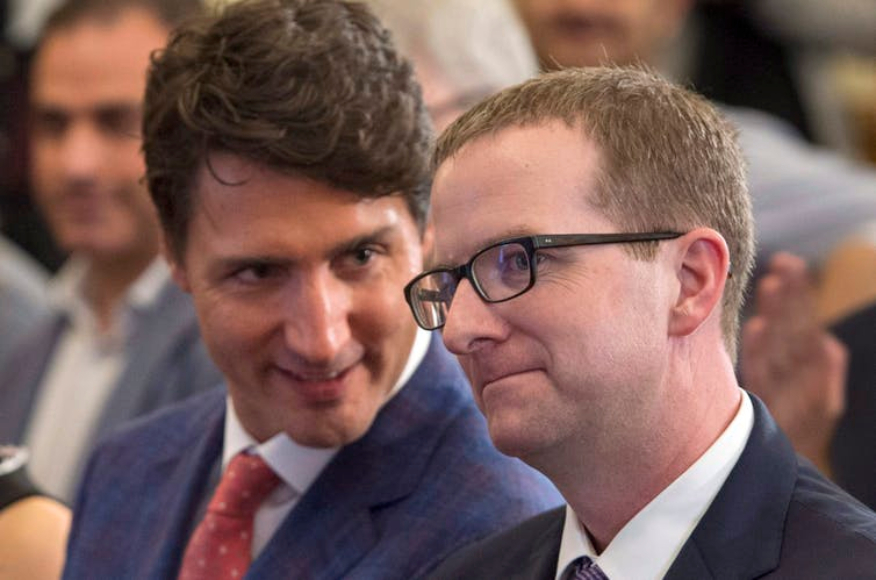Why Canada’s response to the Facebook crisis has been so weak

BY Sara Bannerman
May 29, 2018
Sara Bannerman, McMaster University and Charnjot Shokar, McMaster University
Facebook’s apology tour made a stop in Europe last week, but did little to soothe concerns about the threats social media platforms pose to privacy and election integrity.
Compared to other regions like Europe that have proposed relatively robust measures to protect privacy and election integrity, the Canadian response has been, so far, lacklustre.
The European Union’s tough new privacy laws came into effect last week. The United States government has introduced the Honest Ads Act to address social media election manipulation. Australia is investigating Google for tracking Android users’ location and web histories.
Meanwhile in Canada, Prime Minister Justin Trudeau is reaching out to tech entrepreneurs, hoping to turn Canada into an Artificial Intelligence (AI) hub, and welcoming Amazon to British Columbia.
The Liberal government has spent $24.4 million since 2016 on Facebook ads and boosted posts and videos.
Karina Gould, the minister of democratic institutions, has been praising Facebook’s efforts to protect election integrity and listening to proposals for a partnership with platforms on election leadership debates. Heritage Minister Mélanie Joly is striking deals with Netflix.
Finance Minister Bill Morneau is calling Facebook Live to help with the federal budget announcement.
Indeed, the Liberals may owe their majority government to their use of personal and social media data. Political columnist Susan Delacourt describes the Liberals’ use of detailed analyses of Facebook data, as well as information collected from door-to-door campaigning, to feed their campaign database and their targeting strategies. Other parties use this data too.
It may therefore seem unsurprising that the Liberal government’s steps to regulate platforms and privacy have been so lame. How can a government regulate platforms it is in the process of wooing, and upon which it is dependent?
This is especially true in light of MP Peter Kent’s suggestion that Facebook threatened to withdraw its AI investments in Montréal if Canada imposed increased regulations.
Canadian steps to regulate
Recently, at significant delay, the Liberal government has strengthened data-breach reporting requirements. These rules won’t come into effect until November.
As well, on April 30, the Liberal government introduced the Elections Modernization Act, Bill C-76. All political parties make significant use of Facebook and Twitter to communicate with their constituents, and to collect their treasure troves of data. Unlike businesses, they are not subject to federal privacy regulation, and are not required to ask for consent for the collection and use of personal data.
Bill C-76 would do little to address this, merely requiring parties to post the thinnest of privacy policies. The legislation would not even prevent political parties from selling the highly personal data that parties collect from voters.
Canadian steps inadequate
The measures proposed in Canada thus far fall far short of providing adequate privacy protection given recent revelations.
Bill C-76 does not require parties to disclose what information they are collecting, how they are collecting it or how long it is retained. It does not require parties to obtain consent to collect the information in the first place.
What’s more, there is no mechanism for citizens to correct any misinformation that the parties may have about them.
What can be done?
Canadian privacy law could be more strenuously brought to bear on political parties. At a minimum, Canadians should have a right of access to the personal information parties hold about them, and a right to correct or delete that information.
British Columbia provides a model; its Personal Information Protection Act (PIPA) applies to political parties and provides more extensive protection of personal information.
Privacy laws must be revised to have teeth, including heavy fines and penalties for companies that fail to protect privacy.
Canada could follow the U.S. in a move that Facebook supports — requiring platforms to keep a public archive of all online targeted election advertisements.
This would provide access to information for citizens and ensure a level of public accountability to platforms and third parties. Doing so would help prevent the spread of disinformation and exploitation, and would permit fuller public oversight of election discourse.
Facebook has started to take steps towards an archive of election ads in an effort to comply with the U.S. Honest Ads Act initiative, but the archive is not publicly available. You have to log in to Facebook to view it.
Legislation could require that the archive be public. Trust in political parties, elections and technology depends on strong democratic regulation and the safeguard of personal information.
![]() Canada should take a two-pronged approach to fostering a high-tech economy. While working to encourage high-tech innovation, the government should also foster an environment of trust by strengthening privacy law, applying privacy law to political parties and providing real democratic oversight of platforms.
Canada should take a two-pronged approach to fostering a high-tech economy. While working to encourage high-tech innovation, the government should also foster an environment of trust by strengthening privacy law, applying privacy law to political parties and providing real democratic oversight of platforms.
Sara Bannerman, Associate Professor and Canada Research Chair in Communication Policy and Governance, McMaster University and Charnjot Shokar, Graduate Research Assistant, McMaster University
This article was originally published on The Conversation. Read the original article.


